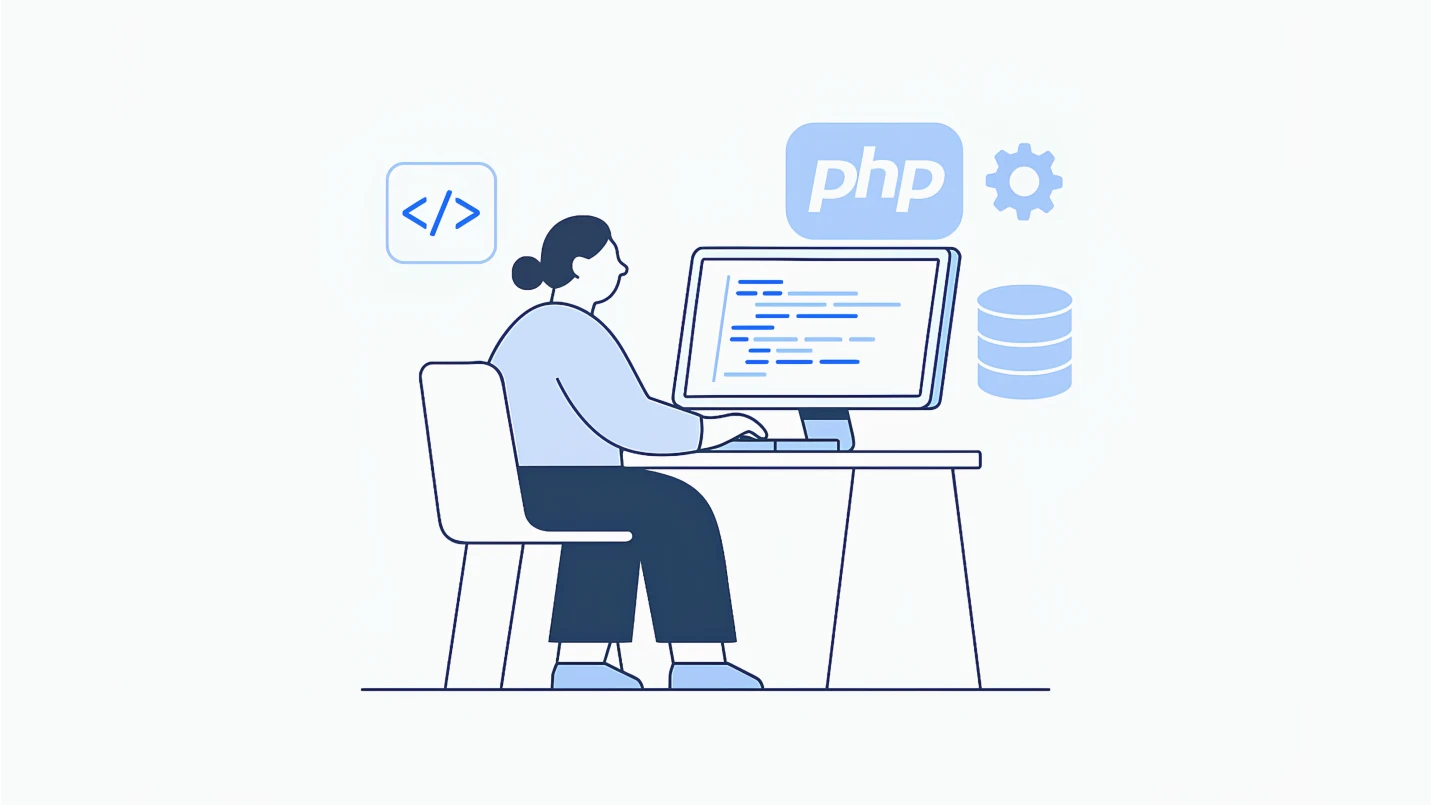Summary: 79.2% of all websites rely on PHP to some degree, making it one of the most favored languages among programmers and web developers. PHP is used on some of the most prominent web properties and platforms, including Facebook, Wikipedia, WordPress, and Zoom. How can PHP help you produce better websites? Let’s read further.
PHP is a common open-source scripting language popular for web applications. Although it originally stood for “personal home page,” PHP is now a recursive acronym for “hypertext preprocessor,” — though chances are you’ll never hear that name again.
PHP is a server-side scripting language embedded in HTML in its simplest form. PHP allows web developers to create dynamic content and interact with databases. PHP is known for its simplicity, speed, and flexibility — features that have made it a cornerstone in the web development world.
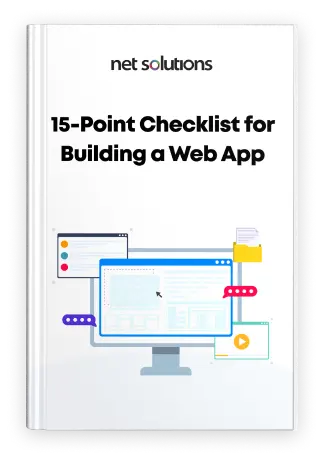
We respect your privacy. Your information is safe.
PHP: A Primer
Like any other scripting language, PHP is fundamentally the tool you use to connect to your database to get information and hand that information over to your web server to be displayed in HTML. But many aspects of PHP set it apart from other languages.
PHP is
- A Scripting Language: Scripting languages are interpreted by another program at runtime (no need for compilation). Scripting languages can be interpreted server-side or client-side (in the browser).
- Server-Side: PHP is a server-side scripting language processed by a PHP interpreter on a web server; the result (the output) is sent to the web browser as plain HTML.
- Open-Source: PHP is freely available to download and use.
- Object-Oriented: Object-Oriented Programming (OOP) leverages the concept of “objects” to contain data and functions to help build more complex, reusable web applications. OOP was added to PHP5.
- Fast: PHP uses its memory, minimizing server workload and increasing performance. PHP can be up to 382% faster than Python and 195% faster than Ruby.
- Simple: The PHP syntax is easily understood and learned, whether you’re building from scratch or leveraging existing frameworks or add-ons.
- Well Supported: PHP supports all leading databases (MySQL, SQLite, ODBC) and is compatible with most servers (Apache, IIS, etc.). It is portable across all platforms (Windows, Mac OS, Linux, etc., and can be further supported by PHP frameworks (Laravel, CodeIgniter, Symfony) and many well-stocked and vetted libraries.
PHP is a loosely-typed language that uses eight data types to construct variables (which store data of different types). Unlike other programming languages, PHP is quite relaxed regarding variables, evaluating and guessing the data type. All variables have a dollar sign ($) to start but can be named anything that begins with a letter.
Unlike many programming languages, PHP variables are neither “strong” nor “weak.” Instead, PHP is dynamic and can use strong or weakly typed variables, denoting how strictly or loosely the conversion happens.
What tools does PHP use?
PHP utilities that can significantly enhance your coding process. Numerous libraries and classes in PHP help with debugging, testing, profiling, and writing code, among other things. Let’s explore a few examples.
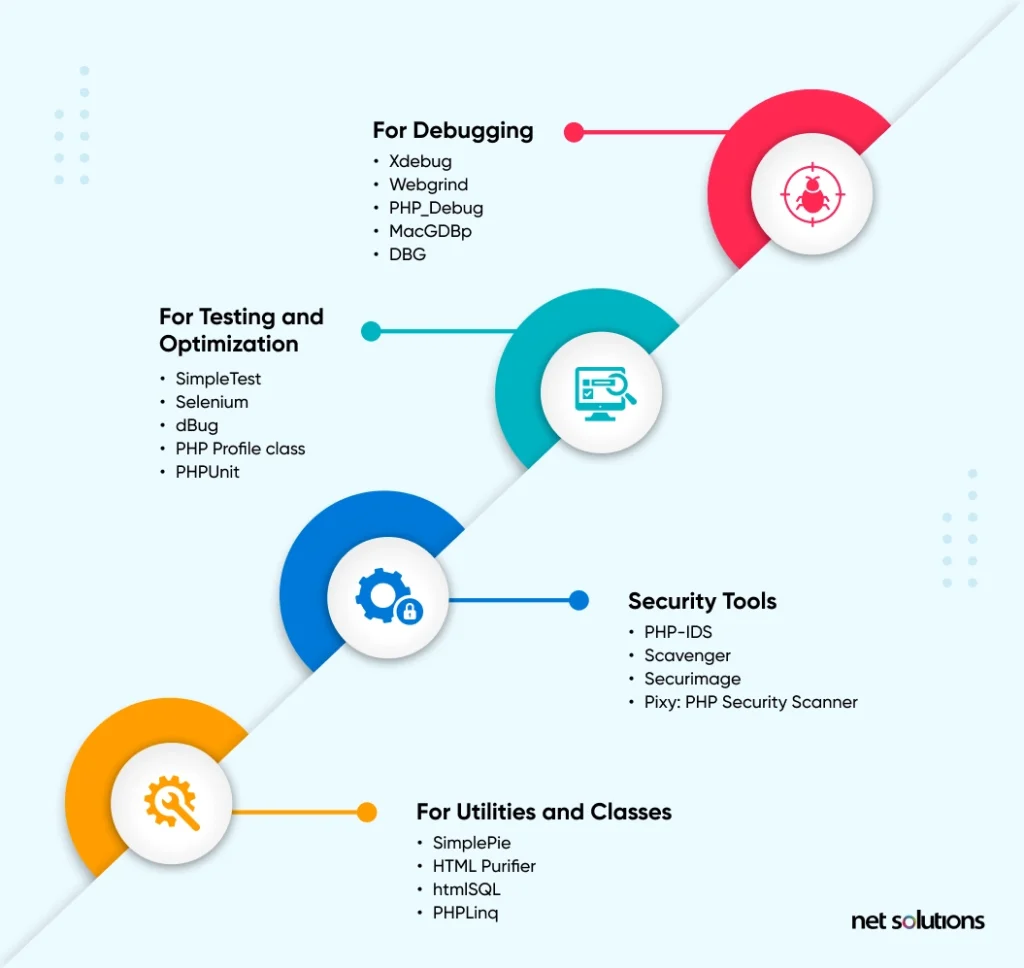
How can PHP help you?
For over a decade, we’ve seen articles asking, “Is PHP Dead?” with competitors such as JavaScript hoping to take its place. Over the years, PHP has held its dominant spot as the backbone to 80% of websites, give or take a few percentage points — a sign that PHP is here to stay. And there’s an excellent reason why.
While PHP is an older programming language lacking some of the features of newer programming languages, it has continued to evolve. With that evolution comes a level of maturity: PHP is well-documented, well-supported, and easy to use.
PHP developers have access to rich frameworks, databases, and libraries to support their work, with the flexibility to set up on any Linux, Windows, or Unix OS. Most web hosting providers offer PHP, and when it comes to cost, PHP often comes out ahead in both development time and the overall cost to run and maintain. As an efficient language, PHP can deliver the high-performance times demanded by today’s consumers.
PHP often appears ahead during your product development planning because it is well documented in APIs. Your PHP-based website can easily integrate all CMS programs and add-ons to create dynamic, interactive, feature-rich experiences.
You should choose PHP for your website, eCommerce marketplace, or application if you want a language that is:
- Flexible
- Compatible
- Scalable
- Secure
- High-Performing
- Affordable
- Well-Supported
- Easy to Maintain
- Easy to Find Developers
With every new release, PHP gets faster than before. The most recent release, PHP 8.0, includes a just-in-time (JIT) compiler that already tops previous performance gains in all of the 7. x releases.
Examples of websites using PHP
PHP can be used to develop dynamic and interactive web pages, applications, and eCommerce platforms. PHP is well suited to various web tasks, from generating dynamic web pages, sending emails, and collecting web forms to sending and receiving cookies. As PHP can store, delete, and modify information in a database, it becomes a strong foundation for creating web applications, including content management systems (CMS), custom online databases, eCommerce websites, gaming applications, and community portals.
PHP offers unparalleled development opportunities when it comes to delivering a robust digital experience that strengthens the brand customer relationship and sharpens your competitive edge.
Let’s take a look at some examples of PHP in action.
Facebook uses its version of PHP called HipHop Virtual Machine (HHVM), the net result of which has been a trickle-down of updates into PHP itself. Facebook has 2.45 billion monthly active users. Talk about scaling!
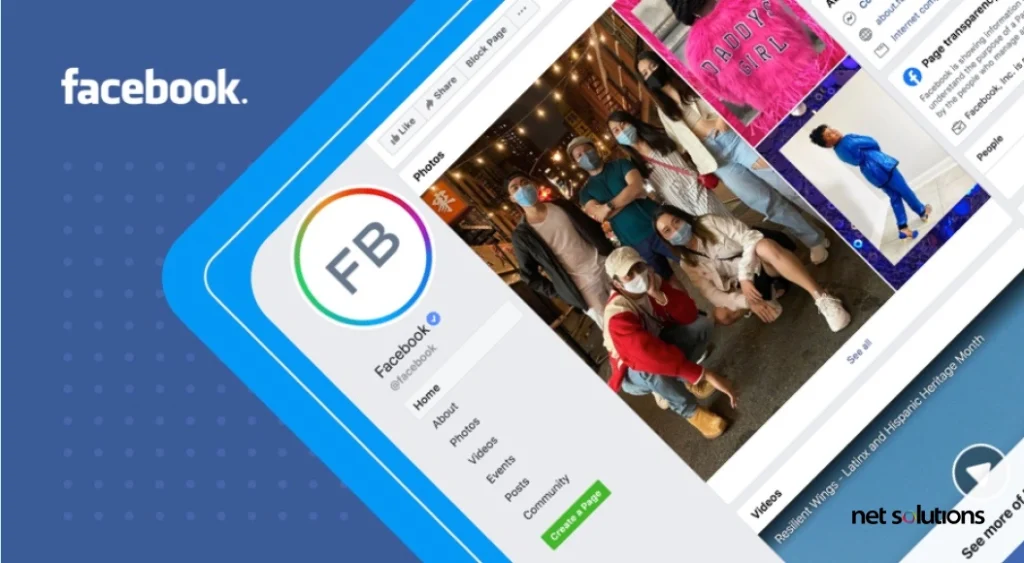
Wikipedia
In terms of updates, nothing sees more action than Wikipedia. Developed at a rate of 1.9 edits per second and 594 new articles per day, Wikipedia is built on the stability and scalability of — you guessed it, PHP!
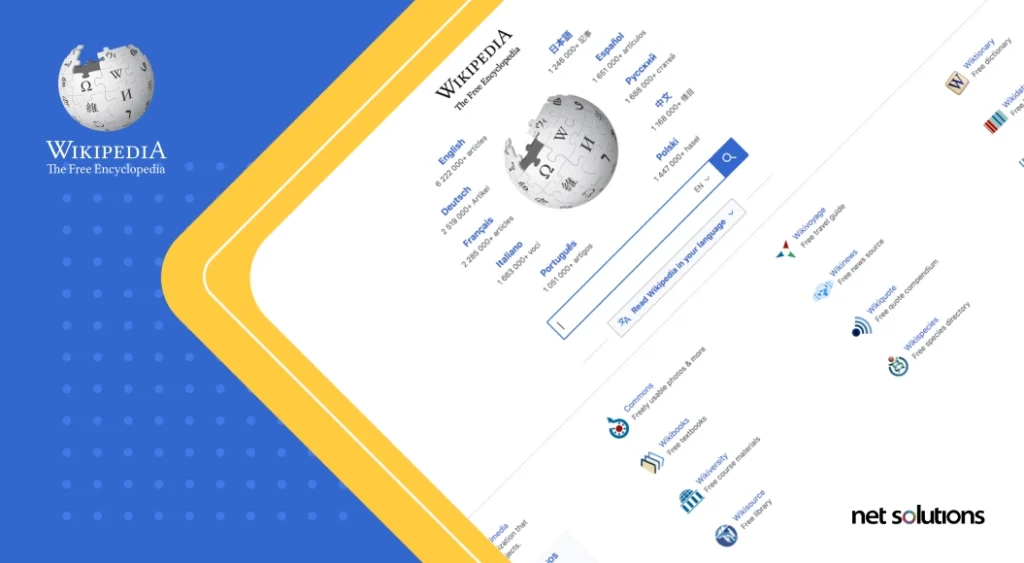
Mailchimp
Mailchimp owns a considerable 60.51% of the email industry, supporting over 12 million customers — all on a PHP backbone.

Yahoo!
The Yahoo search engine and news portal switched to PHP in 2002, moving from a proprietary C/C++ system to the open-sourced PHP to reduce costs and support scaling. Yahoo continues to serve around 700 million people per month.

Canva
Canva has exploded in growth in several years, supporting an easy-to-use photo editor with templates for creating web or print graphics. Ten million users in 179 countries now use the popular design platform.

Slack
Slack has been very public in using PHP for its server-side application logic. And Slack is much more than just a web property — it’s a complete communication platform, recently bought out by Salesforce for $27.7 billion.
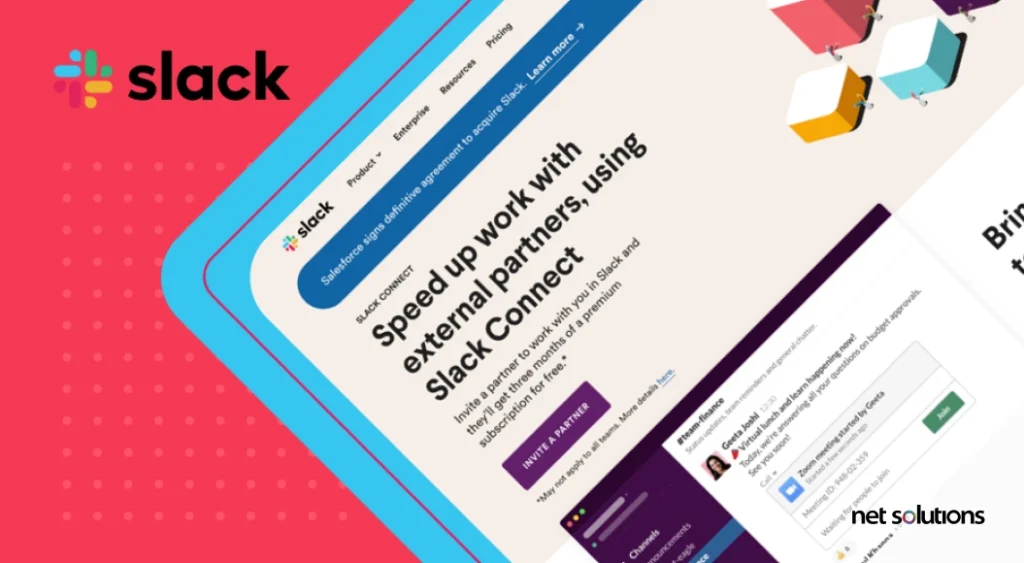
Examples of Content Management Systems (CMS) Using PHP
A content management system (CMS) is an online software application that helps other users create and manage digital content without specialized knowledge. The most common example of a CMS is a system that allows you to make and manage your website without the knowledge of HTML. Other CMS focus on asset management, such as online photo albums or document sharing.
Today, most CMS uses PHP, including WordPress, Drupal, Magento, Joomla, and many other popular platforms. As a PHP framework, developers can use these CMS platforms and add-ons to build cost-effective websites and eCommerce platforms.
WordPress is probably the most well-known PHP CMS, accounting for 76.4% of the CMS market and hosting 75 million active websites. WordPress is endlessly adaptable, hosting sites that range in complexity from the standard blog to large eCommerce stores.
Here are some popular brands that use WordPress:
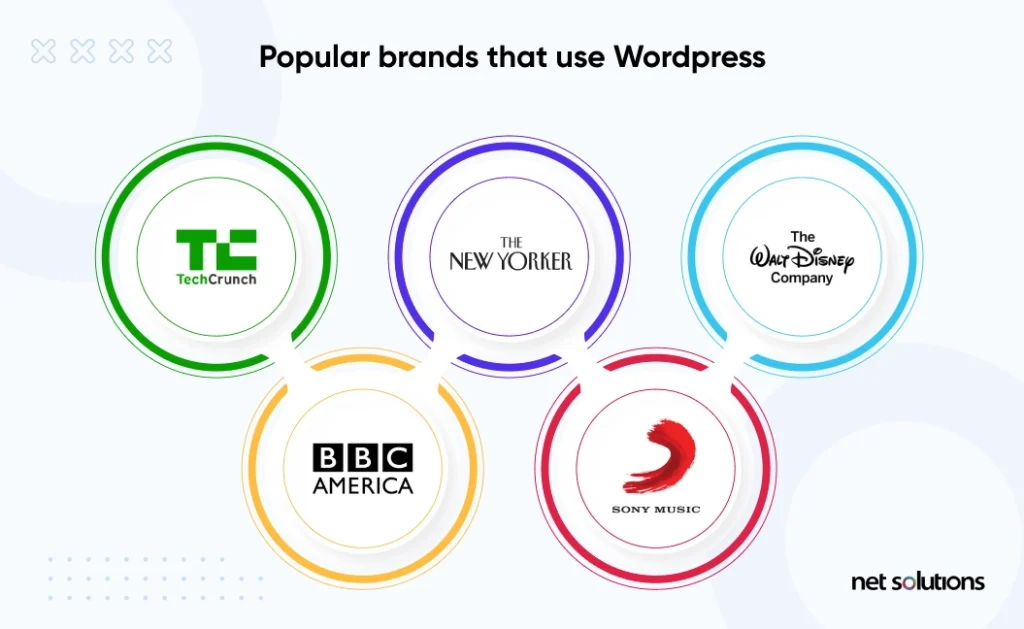
Drupal is an open-source CMS framework written in PHP and is favored as the backbone of many eCommerce platforms.
Some of the top Drupal websites include:
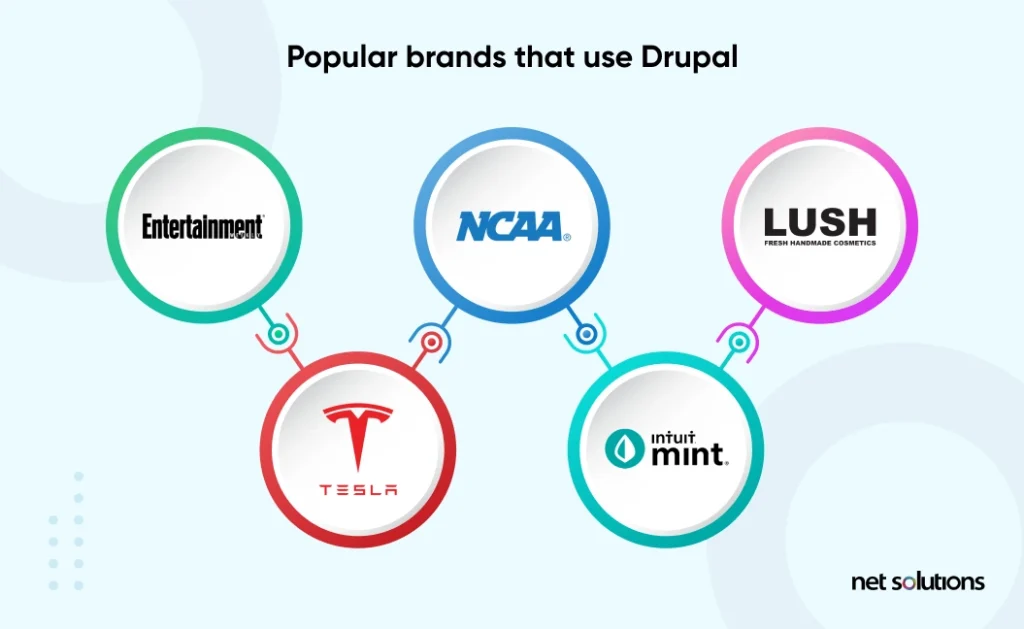
Magento is an open-source e-commerce platform documented in PHP. It utilizes numerous other PHP frameworks, such as Laminasand Symfony. Here are some of the famous websites below –
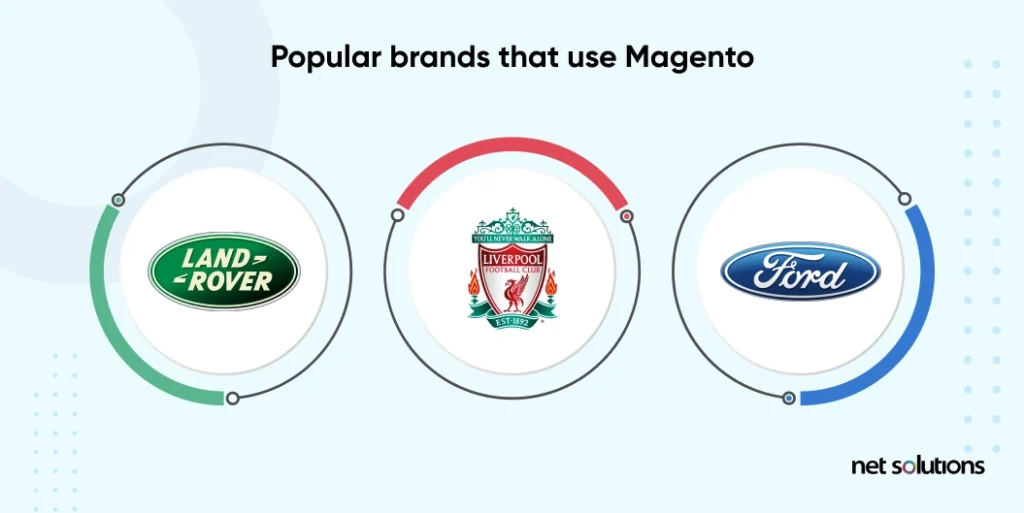
Joomla currently powers over 6.1% of all websites. It is a favored Content Management System (CMS) that offers the best of both worlds, i.e., comfort and flexibility.
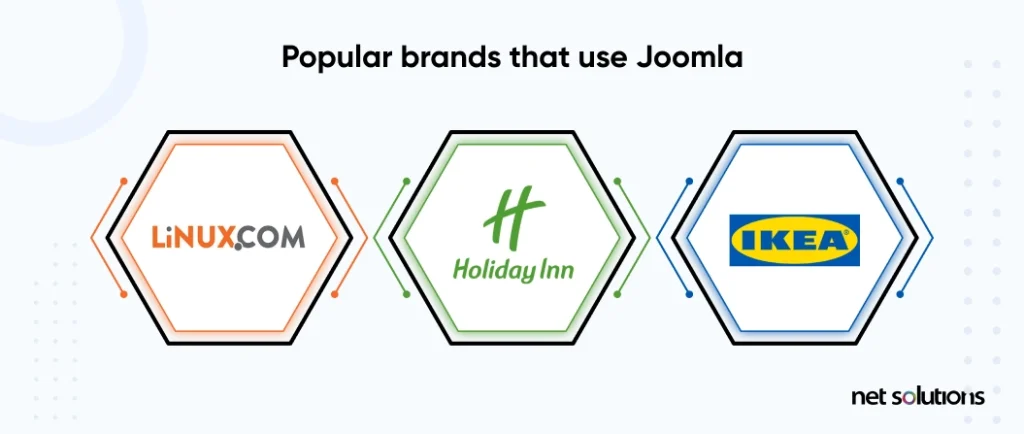
As a web owner, if you have a site powered by one of those platforms, PHP developers can work with you to expand your website, delivering the personalized experience you want for your customers.
PHP and the LAMP Stack
A “LAMP” stack is a group of open-source software that can be installed together — a service bundle, as it were, with PHP often plugged in as a critical component. The LAMP stack includes the following:
(L) Linux, the operating system (A) Apache, the webserver (M) MySQL, the database (P) PHP, and your programming language (includes some installation)
Although the components are interchangeable, the LAMP model, including PHP, remains the market leader for stacks for web development. For example, while there has been growth in the MEAN bundle (MongoDB, Express.js, AngularJS, and Node.js) with JavaScript, the MEAN stack is only well suited to some projects, mainly where scalability or performance is a top concern.
PHP Application Development
PHP is an amicable language, so many developers out there can get you up and running. There are also many remarkable PHP frameworks (Symfony, Laravel, Aura, CodeIgnitor) and CMS platforms (Drupal, WordPress) that you can leverage in your PHP web application development. Unfortunately, much of the “dislike” of PHP comes from the overabundance of wrong code out there.
Do not judge PHP by its worst practitioners.
Your customers demand and deserve a fast, intuitive, feature-rich experience. So you need a PHP development partner you can trust. Net Solutions has over 20 years of experience in PHP Web Development Services. Our experienced core PHP and CMS team have designed and delivered customized websites, eCommerce stores, apps, and portals that help businesses scale fast and stay future-proof.
Whether you are looking for a new PHP application or a partner who can help you maintain/perform security updates on an existing platform, we’re here to help.
Why use PHP IDEs?
A PHP IDE has syntax highlighting and other abilities of a PHP editor, plus other features that foster PHP development. The best PHP IDEs typically give you ready-made code templates and comprehensive projects.
We all aspire to create clean code, be more productive, and make fewer errors. Of course, it is up to you, but in most situations, integrated development environments (IDEs) can make it simpler for you to accomplish those objectives. Choosing the best IDE is challenging because there are many factors to consider. And practically every IDE’s website claims to be the greatest one.
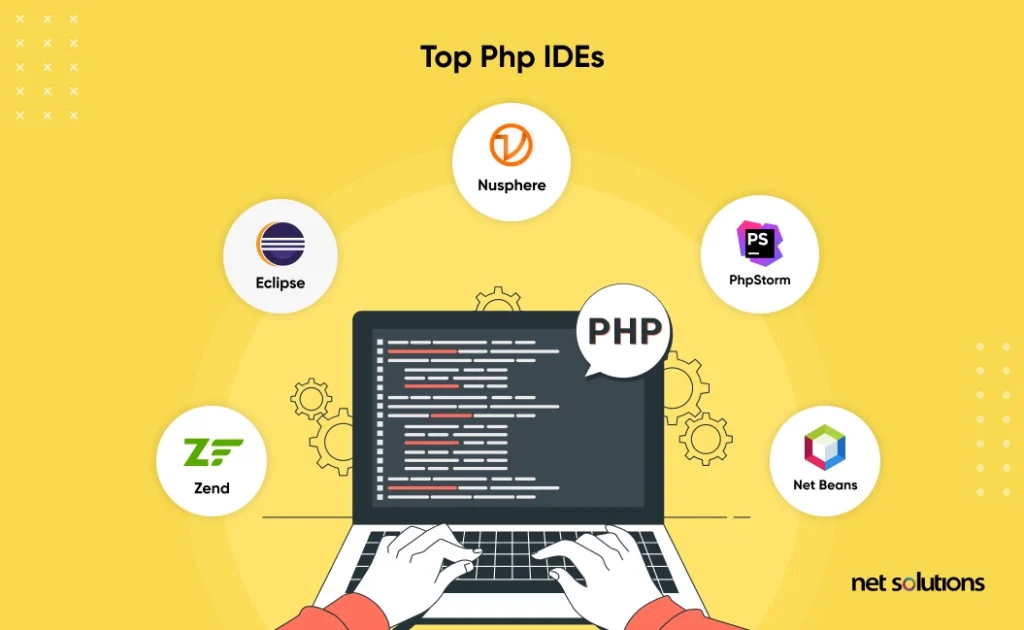
The following pointers will help you decide –
1. Code completion
Automated code suggestions help the developer avoid typing so much. If it supports custom classes and phpDoc, it can save you from reading project documentation.
Proper code completion also controls typos. For instance, if typing $cotroller-> doesn’t display any suggestions, you’ll know something is incorrect. It should have been $controller!
2. Debugging
Debugging is less crucial in PHP since you can utilize FirePHP or add echo s without recompiling your code. However, debugging can save you hours when dealing with sophisticated systems where you must put echo after each line to observe what’s happening.
3. Client-side features
It’s uncommon to use PHP by itself, and JavaScript and CSS are usually always present in some form in your application. Practical code completion, highlighting, navigation, and some refactoring would be advantageous for the additional languages and technologies you utilize in addition to PHP.
Every IDE offers a wide range of functionality. Some of those functions come in quite handy, while others don’t. Start with free ones. You might not need to purchase a license because their feature set might be sufficient for your needs. Make sure the features are what you need and want. If they are, ensure they function correctly in your preferred IDE. Try specialist tools if you find one IDE that works well but lacks one or two functions. Before using an IDE in a significant project, experiment with it for a week. Your existing working practices are far too rigid for you to feel secure.
PHP Tips to the rescue
A few tips and tricks will help you cut down a couple of lines of code; read below –
1.Use ternary operators

Here, the code means to escape $host if the string length is greater than zero, but instead, accidentally, it’s the opposite. Concision only makes the code the same.
The ternary operator may be fine for one-liners, prototypes, and templates, but an ordinary conditional statement is always better. PHP is descriptive and verbose, and the code should be, too.
2.Memcached
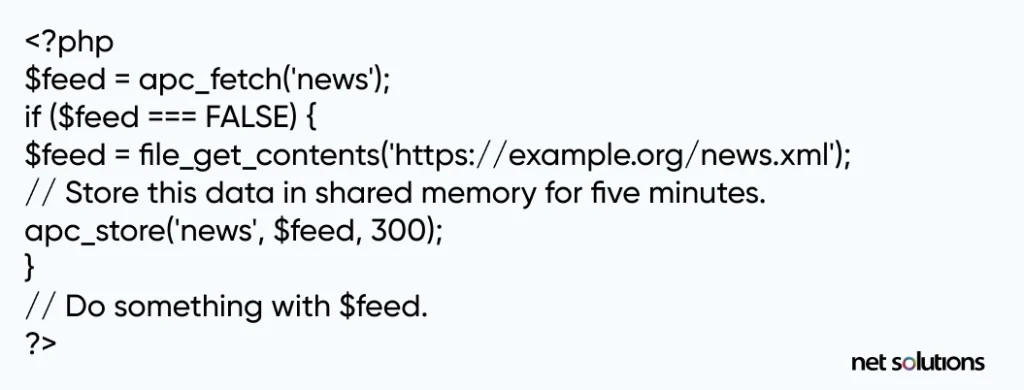
You most likely only need Memcached if your program is deployed across numerous servers. Simpler caching techniques, like serializing data and storing it in a temporary file, can reduce the effort required to process each request.
Using the shared memory helpers in APC, a caching system is one of the simplest and most used ways to cache data in memory. In the example above, you don’t need to wait for a distant server to provide the feed data for each request if you use this form of caching. A certain amount of delay is experienced—up to five minutes in this example—but this can be changed to achieve the real-time performance your program wants.
Frequently Asked Questions
PHP was created to work with HTML and can be embedded in the HTML code. Pure PHP files do not contain any HTML tags. The server interprets the PHP code and returns the results to web browsers in HTML code.
- Ask questions linked to previous projects.
- Assess based on the current knowledge base and learning skills.
- Experience Level.
- Technical Proficiency.
- Certifications.
- Communication Fluency.
- Check the Developer’s Portfolio.
- Technical Interview Questions.
PHP is one of the backend languages known as the scripting language. When a PHP page is requested, the server parses the PHP code, which in most cases results in dynamically created HTML.
PHP is a server-side language because php requires a server to run code. The Code of php gets executed on the server, and the result of execution is returned to the browser. That’s why php is called script language and server-side language.

